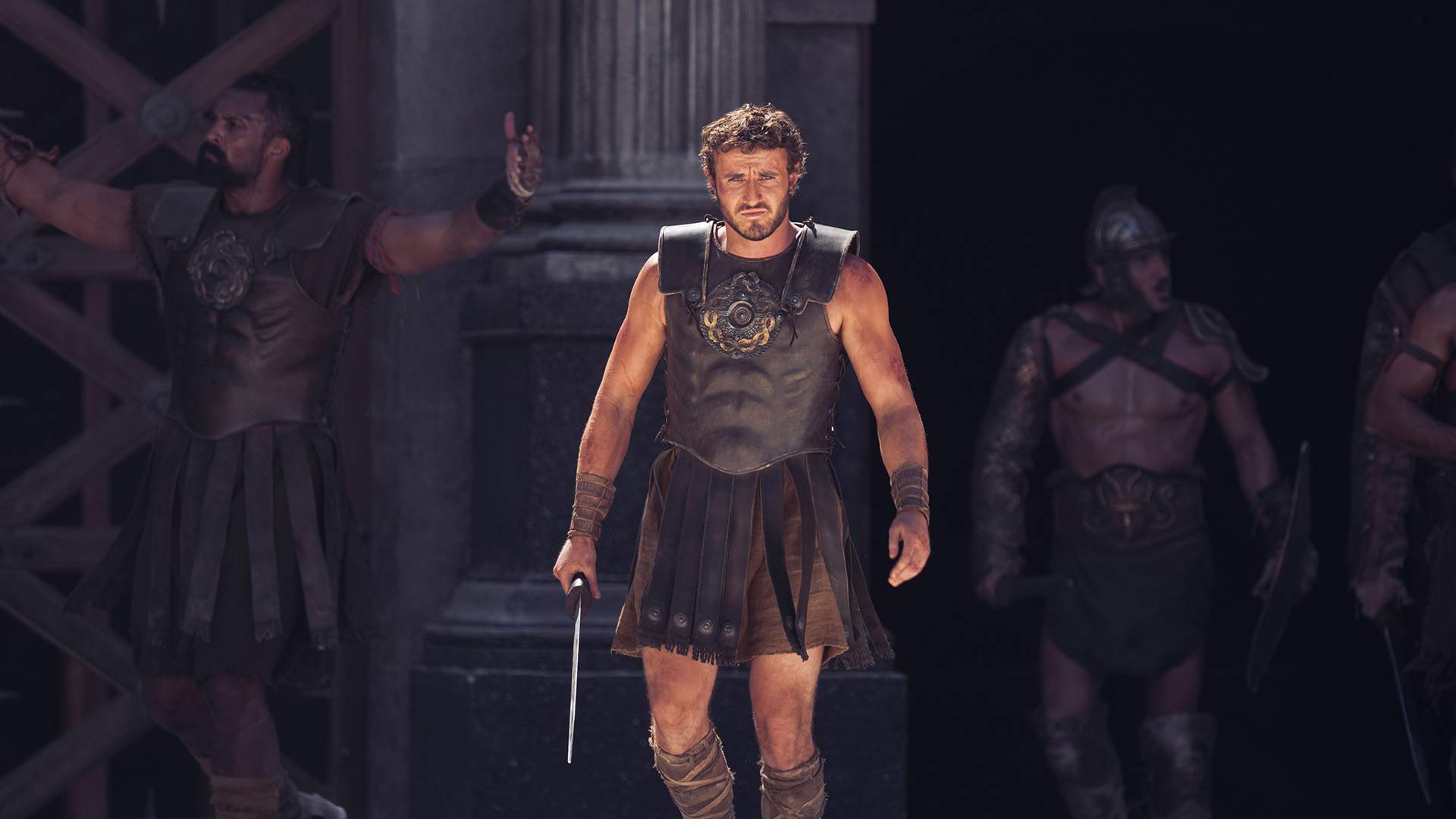Finding Inspiration in Ridley Scott's Colosseum: Paul Mescal, Connie Nielsen and Fred Hechinger Chat 'Gladiator II'
"Basically I want to be like Ridley when I grow up. That’s the root of it for me," Mescal told us about working with the iconic filmmaker on this epic sequel.
How often do you think about the Roman Empire? So asked the much-memed question of 2023, as no one could avoid. With Gladiator II reaching cinemas to give 2024 one of its big blockbusters for the year, another query, also Roman Empire-related, springs to mind: how often do you think about Ridley Scott's 2000 epic Gladiator — the film that won five Oscars, including Best Actor for Russell Crowe as general-turned-arena combatant Maximus — whenever you're thinking about the Roman Empire?
The first Gladiator is that influential. For more than two decades since its release, the swords- and sandals-heavy movie has proven an enduring pop-culture touchstone when it comes to contemplating its specific chapter of history through a Hollywood lens, and just in epic cinema overall. Are we not entertained? Audiences the world over were at the turn of the century, so it has never been surprising that talk of a follow-up has been buzzing since 2001. How a second feature would play out has shifted, changed and evolved several times since — Nick Cave even wrote a script — but the film that's transporting viewers back to the Colosseum still boasts exactly what it always needed: the now-octogenarian Scott at the helm.
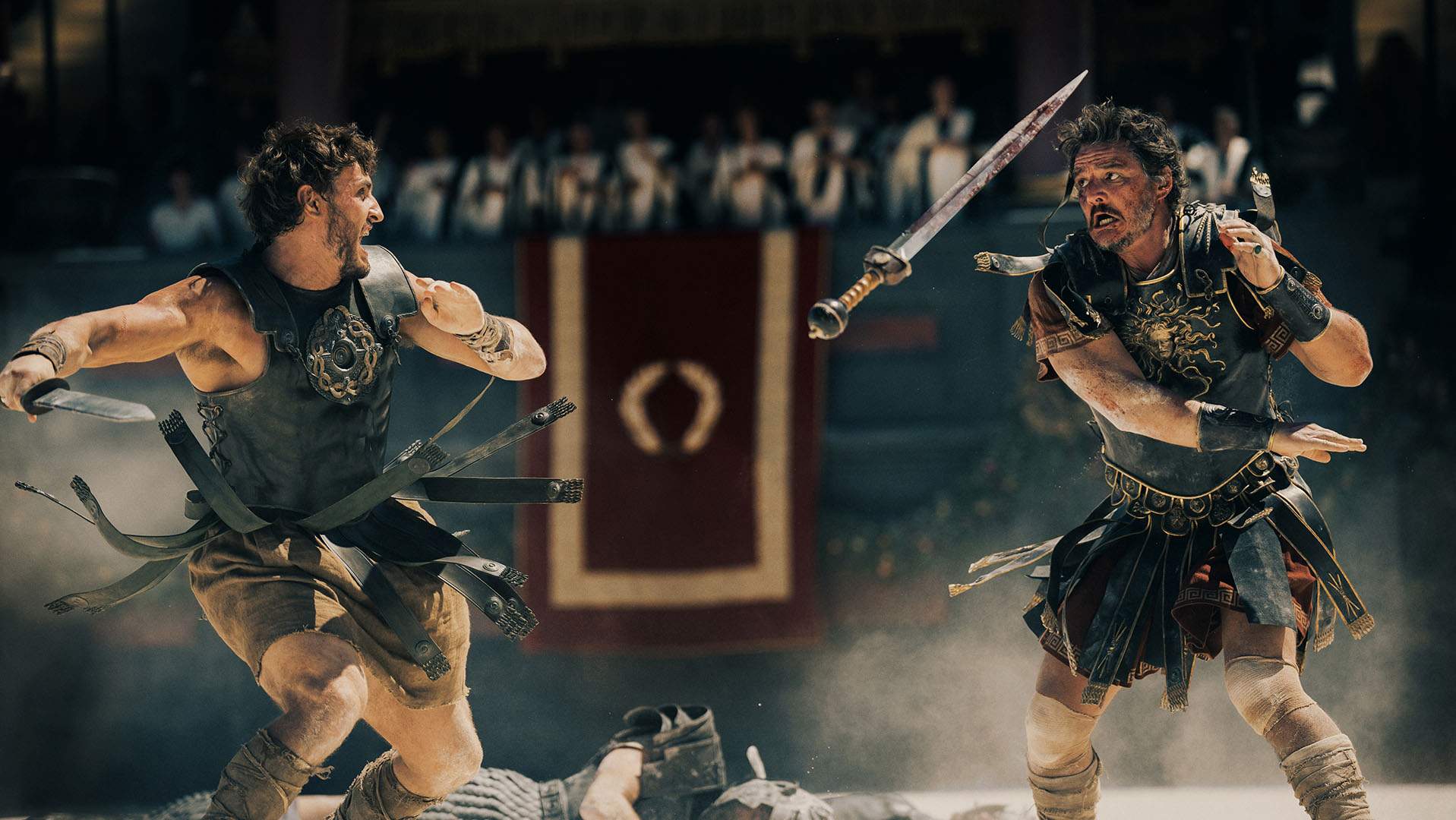
Audiences should be thankful that the iconic Alien, Blade Runner and Thelma & Louise filmmaker has added another Gladiator flick to his resume, returning to one of his hits again as he last did with the Alien realm with Prometheus and Alien: Covenant (and that he's continuing to be prolific, helming his fourth film of the 2020s after The Last Duel , House of Gucci and Napoleon). Paul Mescal (All of Us Strangers), Connie Nielsen (Origin) and Fred Hechinger (Thelma), three of Gladiator II's stars, aren't just grateful that Scott is behind the camera on the film; speaking with Concrete Playground when they were in Australia for the movie's premiere in Sydney, the trio couldn't have been more inspired by their time working with the director.
"Basically I want to be like Ridley when I grow up. That's the root of it for me," Mescal shared with us. Nielsen described returning to one of Scott's sets, and stepping back into the Colosseum in particular, as feeling "like I was coming home". And Hechinger summed up the enthusiastic trio's communal sentiments about collaborating with the filmmaker, when asked what they had each learned from him at the end of our chat — which sparked eager answers. "I know this was your last question and you had a minute, but clearly if you asked this at the beginning of the interview, we could have talked the entire interview for five months about all the things that we learned from him."
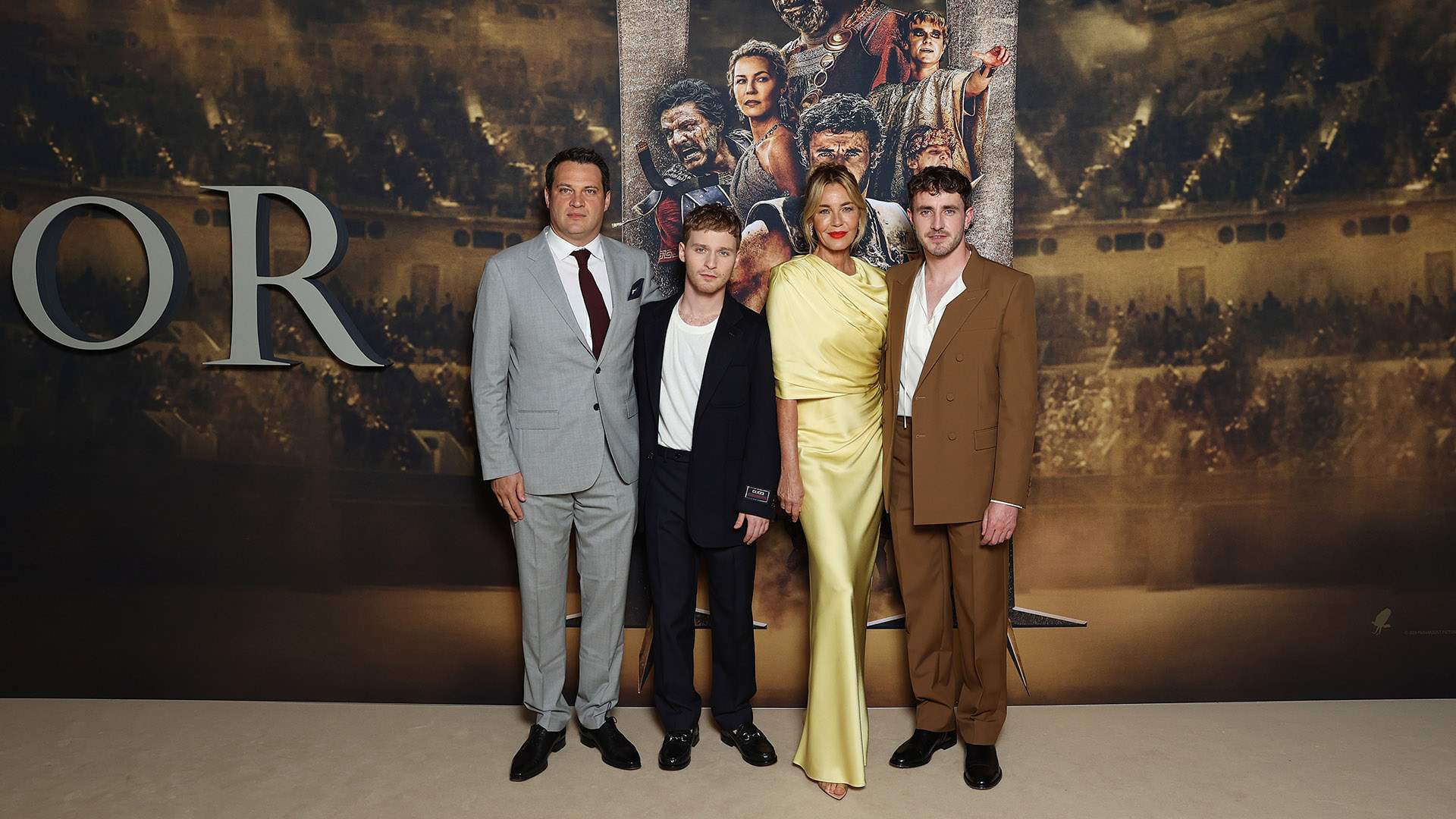
Brendon Thorne/Getty Images for Paramount Pictures
As Lucius, Mescal is Gladiator II's focal point, with the Aftersun Oscar-nominee, plus The Lost Daughter, Carmen and Foe talent, leading his first Tinseltown blockbuster just four years after the Irish actor became a global obsession courtesy of Normal People. He slides into Crowe's (The Exorcism) shoes in terms of starring in a Gladiator picture, and also into Spencer Treat Clark's (Salem's Lot), who portrayed the same character as a boy in the first film. Lucius' path is familiar, too, taking him from military command to slavery and fighting for his life in front of Roman crowds. As Gladiator viewers know, his mother, aka Nielsen's Lucilla, has seen this situation occur before as well — but this time, it's Hechinger and Joseph Quinn (A Quiet Place: Day One) as sibling Emperors Caracalla and Geta who are lording over the empire, rather than Joaquin Phoenix (Joker: Folie à Deux) as her brother Commodus.
Scott's knack for casting remains exceptional with Gladiator II, which also boasts Pedro Pascal (Drive-Away Dolls) as Roman general Marcus Acacius and Denzel Washington as power broker Macrinus. Mescal ensures that Lucius is a determined, devoted and unflinching leader, whether he's literally guiding an army or battling as a gladiator — and also warm, vulnerable and open. Nielsen, who has featured in everything from the Wonder Woman films and Nymphomaniac to TV's Boss and The Following between stints as Lucilla, keeps unpacking how women, even those seen to have some influence and status, can sometimes only be permitted to inhabit a certain space in their worlds. And for The White Lotus, Fear Street and Pam & Tommy alum Hechinger, playing Caracalla means being hedonistic, ruthless, reckless, power-hungry and blood-thirsty opposite not only Quinn but also Caracalla's pet monkey Dundus.
With Mescal, Nielsen and Hechinger, we also discussed the present-tense nature of Scott's sets, finding space for Lucilla's political instincts, stepping beyond Crowe's shadow and turning in unpredictable performances — alongside unpacking male psychology, Gladiator II's rallying against the control of the one percent and the devil-may-care abuse of power, and more.

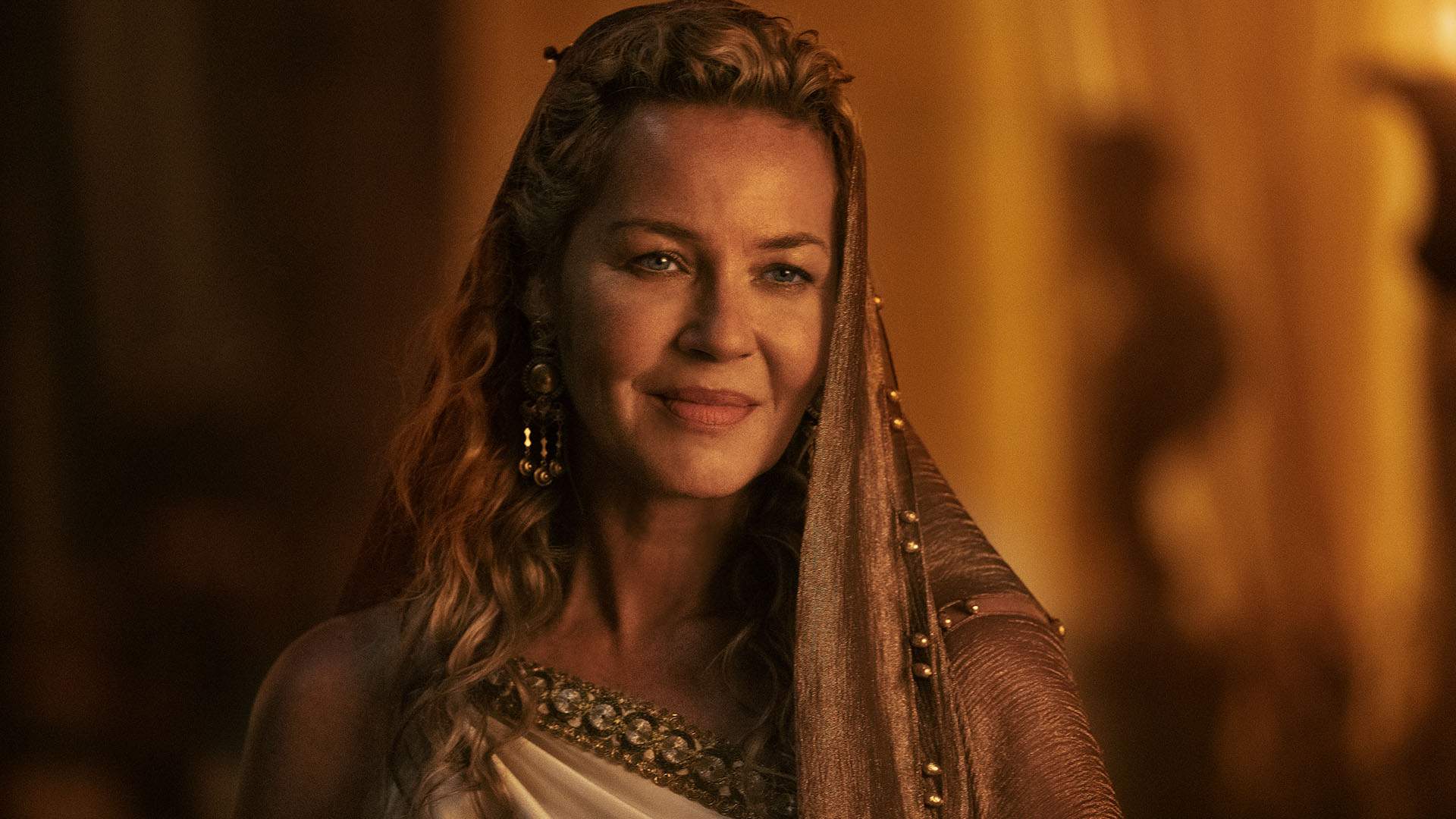
On What Nielsen Was Most Excited About in Returning to the World of Gladiator After More Than Two Decades
Connie: "The fact that this is a mature woman of experience and of intellectual weight. You don't see many women like that in the theatre kind of ever. And so the way they wrote her, they really made her, yes, the heart and the big mother in the film, but they also made so much space for her political instinct and also for her dreams.
You don't really see that much, and so it was very exciting to see and expand on a woman that I played as a young girl."

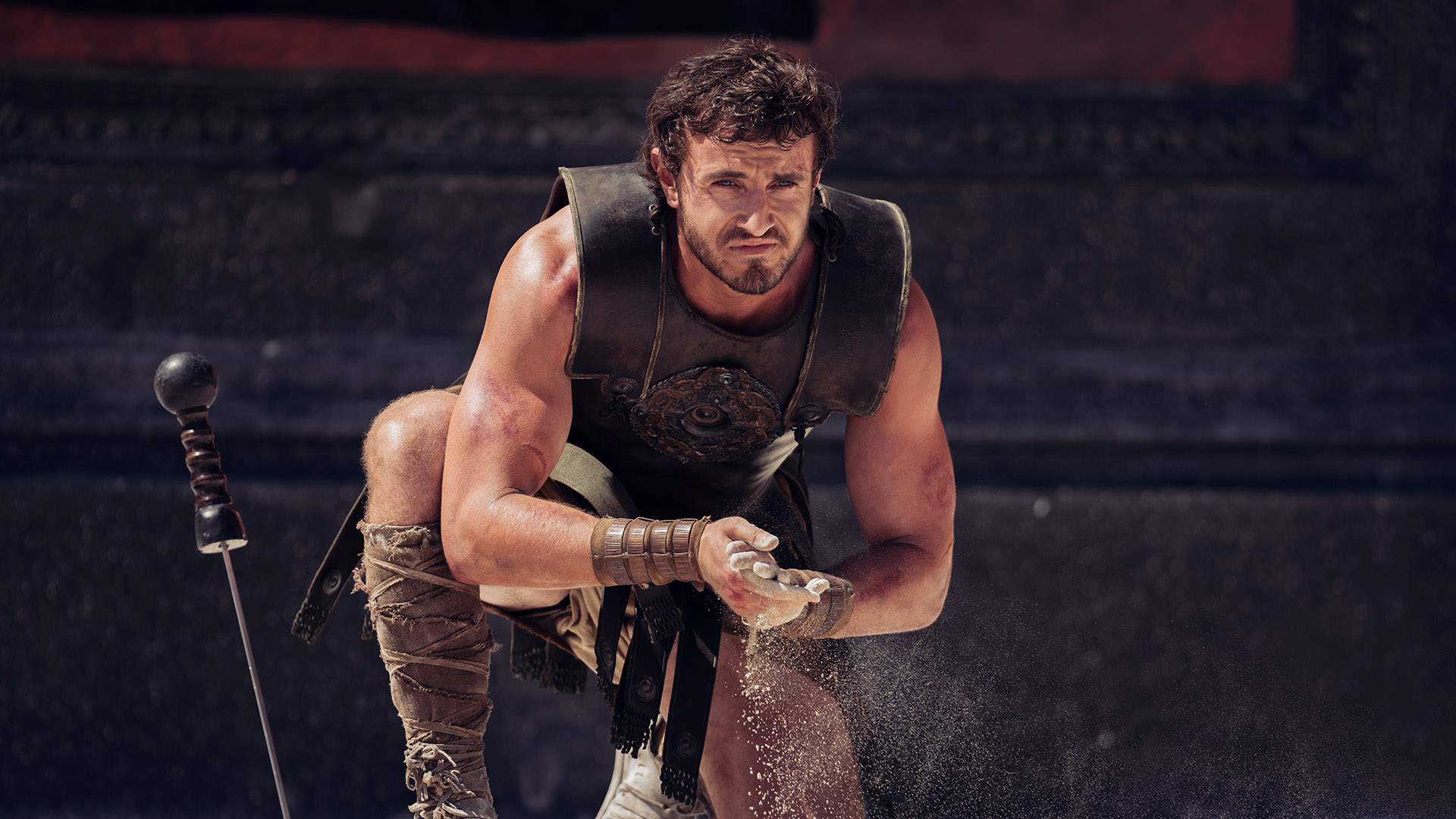
On Mescal Always Being in the Moment Despite the Pressures and Responsibilities of Following in Russell Crowe's Footsteps
Paul: "You feel a sense of pressure and responsibility with every single film that you ever make — this being different in the sense that Gladiator, the first Gladiator, is absolutely adored, as it should be. Russell is absolutely adored for that performance, as he should be.
But the idea of legacy or pressure is a fundamental problem — it's directly in conflict with trying to carve out your own performance.
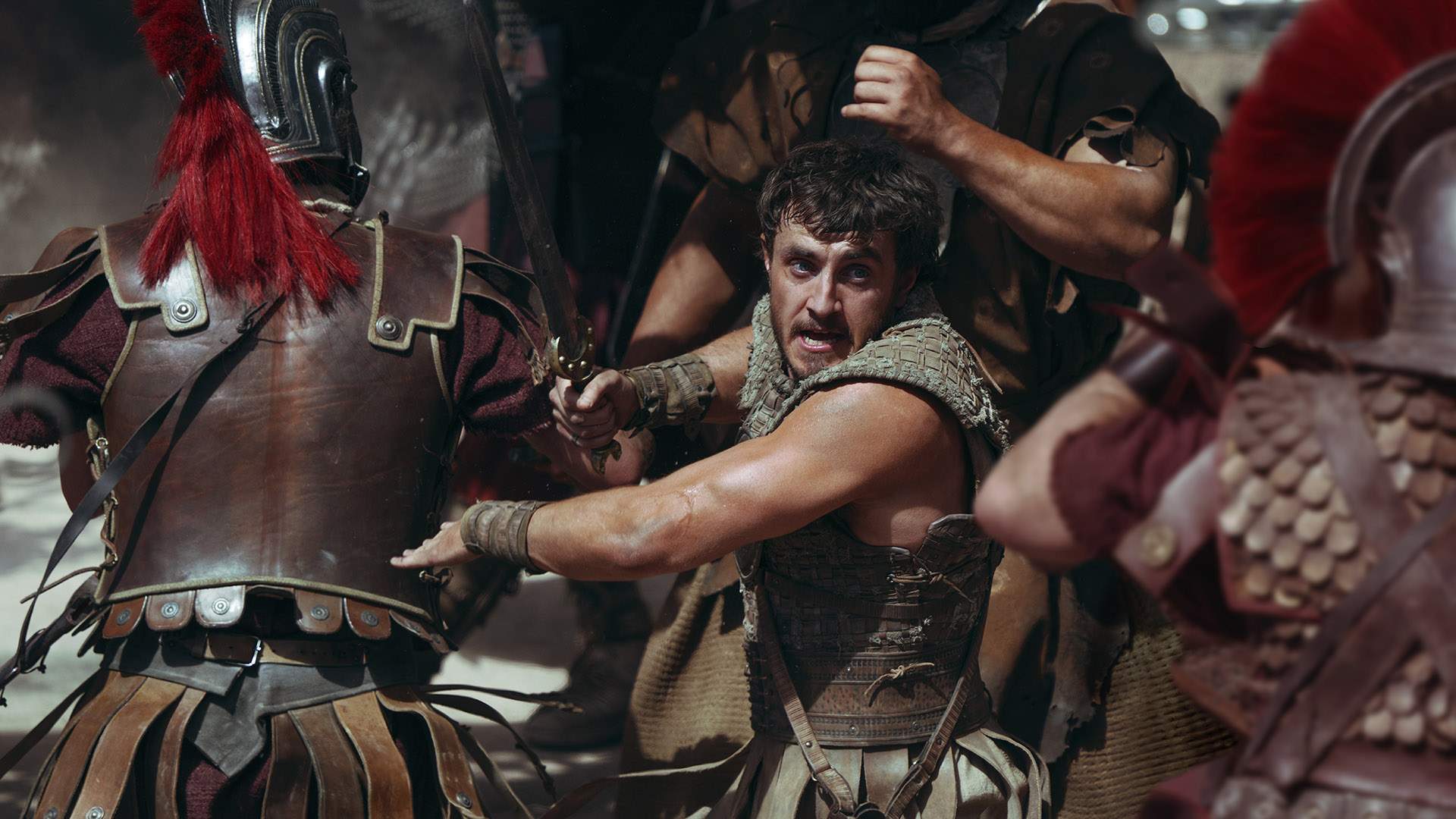
You can't really lean into it all that much, because the words used to describe the first one and Russell are applied over time, and with the act of making the film — Gladiator II or any film — it has to be utterly present-tense. You have to go to work and build it beat by beat, block by block, day by day.
And Ridley's sets are wonderfully, wonderfully present-tense. There's no time to breathe or think about the past or think about the future. You are carving out your own plot of land and desperately trying to protect it."

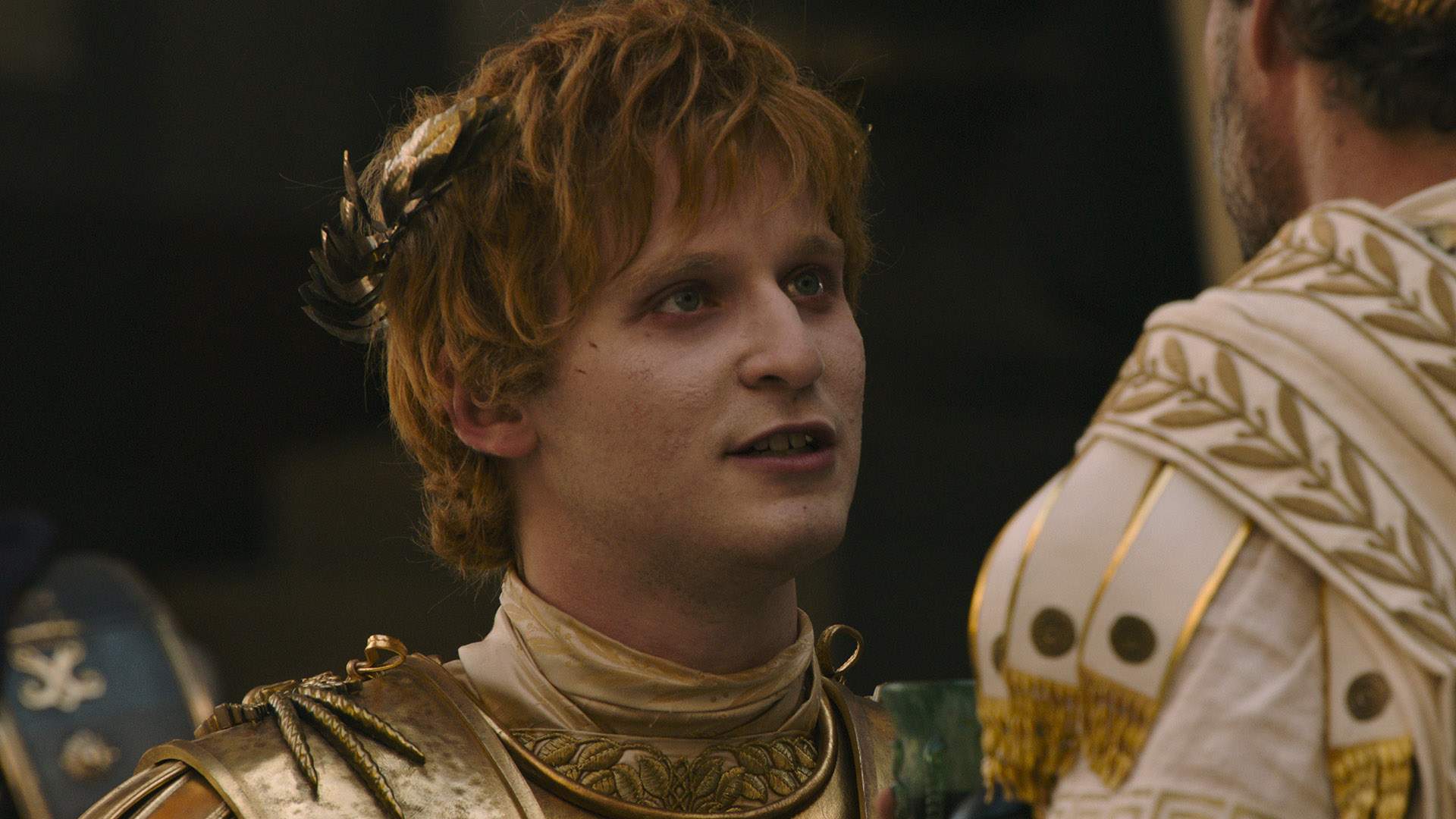
On How Hechinger Crafted a Hedonistic, Ruthless, Reckless and Utterly Unpredictable Character Like Caracalla — and One of a Pair
Fred: "I think you want a genuine feeling of danger and ..."
Connie: "Unpredictability."
Fred: "... Unpredictability. I guess it's a little bit of a conundrum. How do you craft unpredictability? But I think you have to put so many things in there that you can find how to get out of your own way, or at least you have enough tools and elements that you not only surprise others but yourself.
What Paul is speaking to in terms of Ridley's set is a true gift in that regard. He's building an environment that is utterly convincing, and also hurtles forward whether you interact with it or not. So the urgency and the full-body need to be heard, and to carve some space, as Paul was telling you about, I think really mixes with my character and all the characters in the film.
You have to reckon with the space and there's no shortcut for you. You realise on other sets how many shortcuts are built in, and sometimes the disservice to the work that that does. I think, in this case, there's a real challenge every day — and that as an actor is a gift, because if you're playing someone who's impulsive and dangerous, the environment matches that level of danger and sense of possibility."
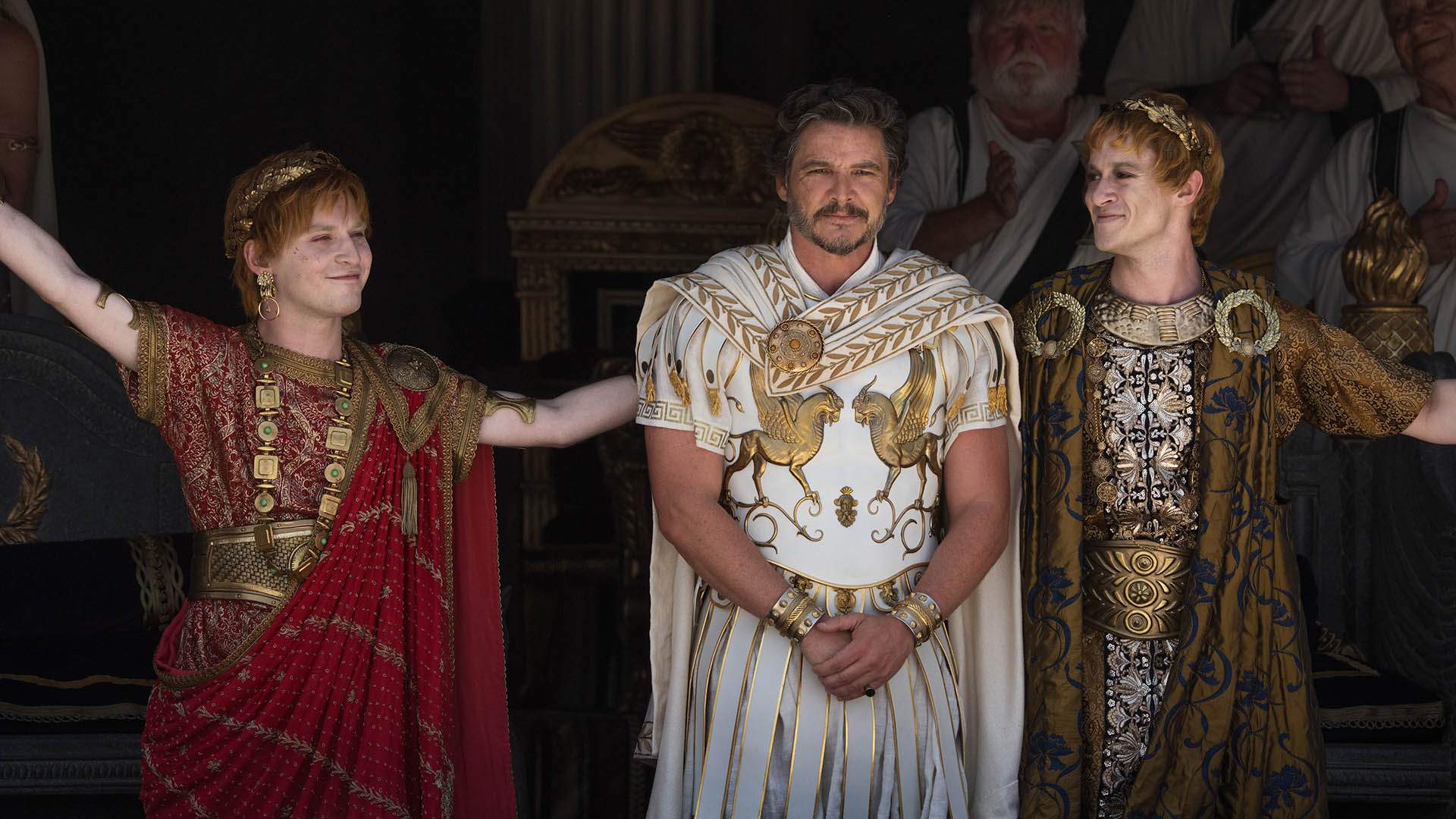
Connie: "And also Fred, you weren't getting any rehearsals, really."
Fred: "Yeah, there is no rehearsal. I mean, Ridley doesn't do rehearsals."
Connie: "So you guys basically had to make up a lot of choices prior to even coming to set."
Fred: "Joe Quinn and I did work closely on certain aspects of their brotherhood. There's a quality to their relationship that is a double act — at least in public they are. And so some of those Colosseum days felt like we were preparing for the Colosseum. We were preparing for a public thing. We're thinking 'how do we as a duo speak to Rome today?'. And so that it mirrored the story in a lot of ways there.
And then I would say that the private side of them, that dynamic was something that was less prepared and spoken about with Joe — but implicitly by not talking about it, we were sort of secretly preparing the opposite side of it, in terms of the public and the private of their relationship."
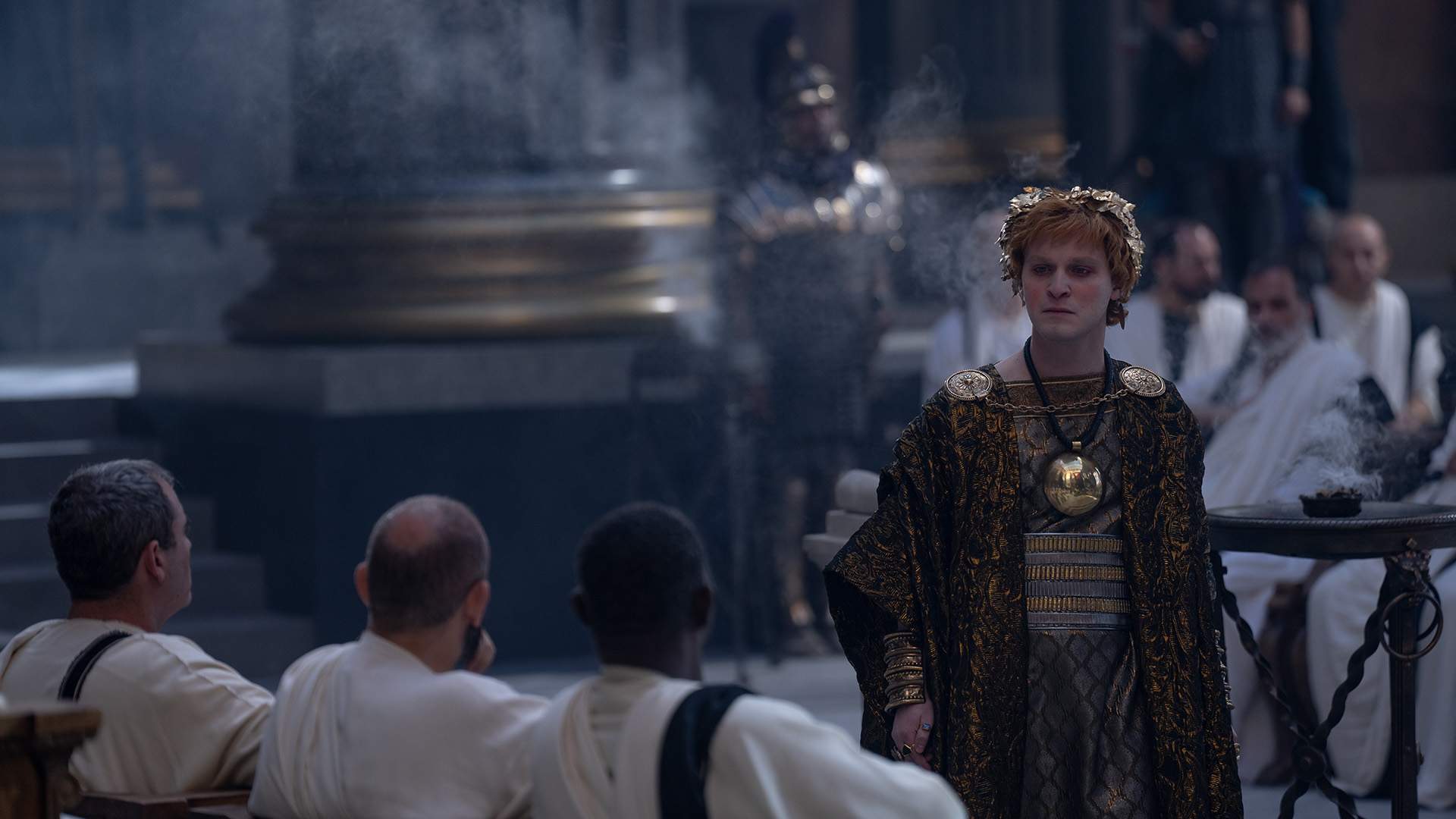
Connie:" I think for the rest of us, who were sitting around and watching them start up this whatever dog-and-pony show you guys are doing that day, I was like 'that is so cool'. It was really cool for us to watch. You guys had really worked hard to get things ready and I just love that. It's so professional."
Fred: "Thank you, it means a lot."

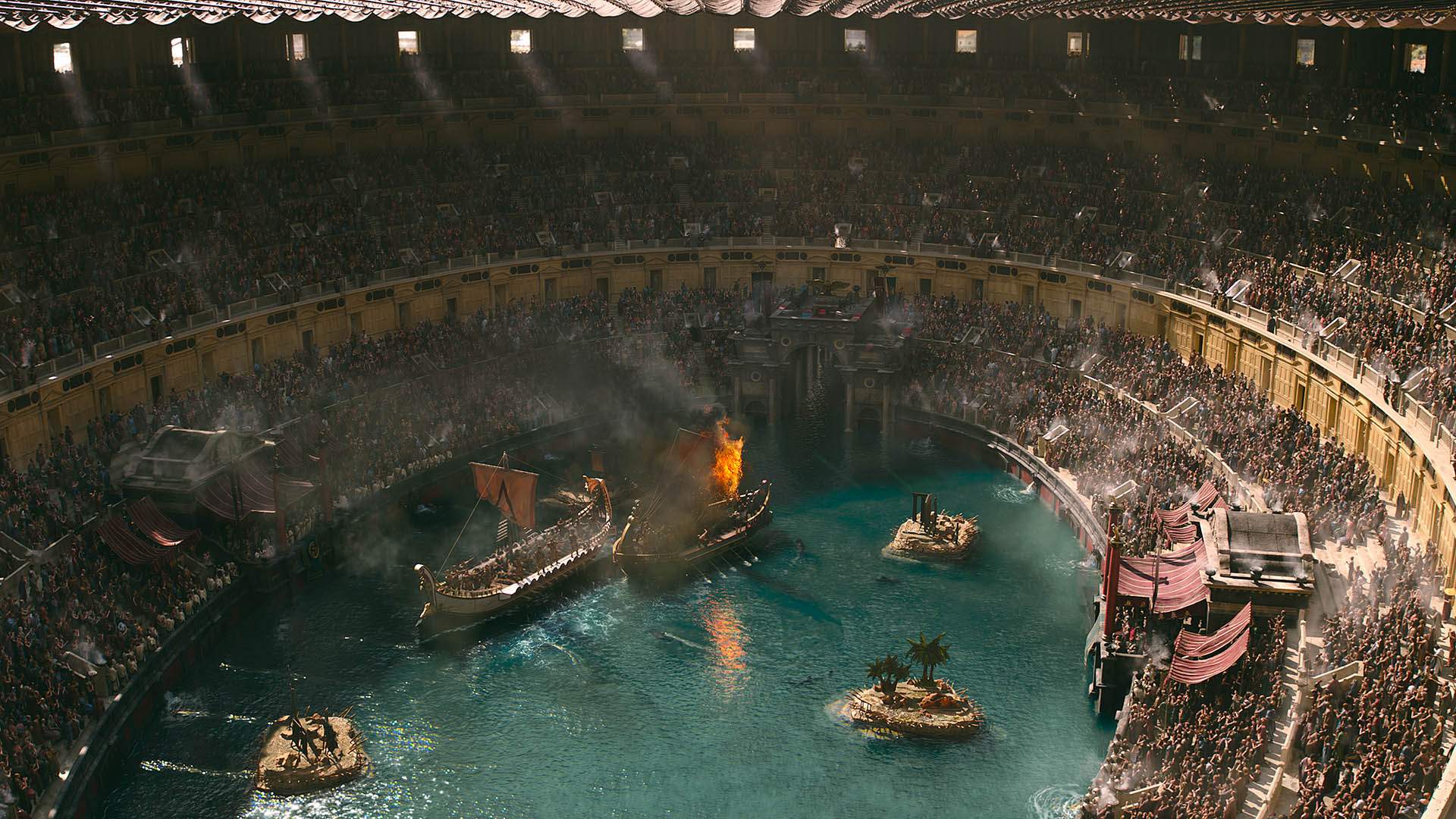
On What It Feels Like to Step Into Scott's Colosseum — for the First Time and When You're Returning
Connie: "For me, it was so strange. It really felt like I was coming home. I know this place — what is it called, the prodigal daughter, returning to daddy's home?"
Fred: "I felt — I think I said this to you in person — I felt that Connie was such a leader to all of us. I do remember this first days when you were talking about the experience of returning to the Colosseum, what the Colosseum was like then versus now. It not only made us feel more comfortable as people on the set, it also was really intelligent in terms of continuing to build the world for us.
I think it was really creatively generous and additive."
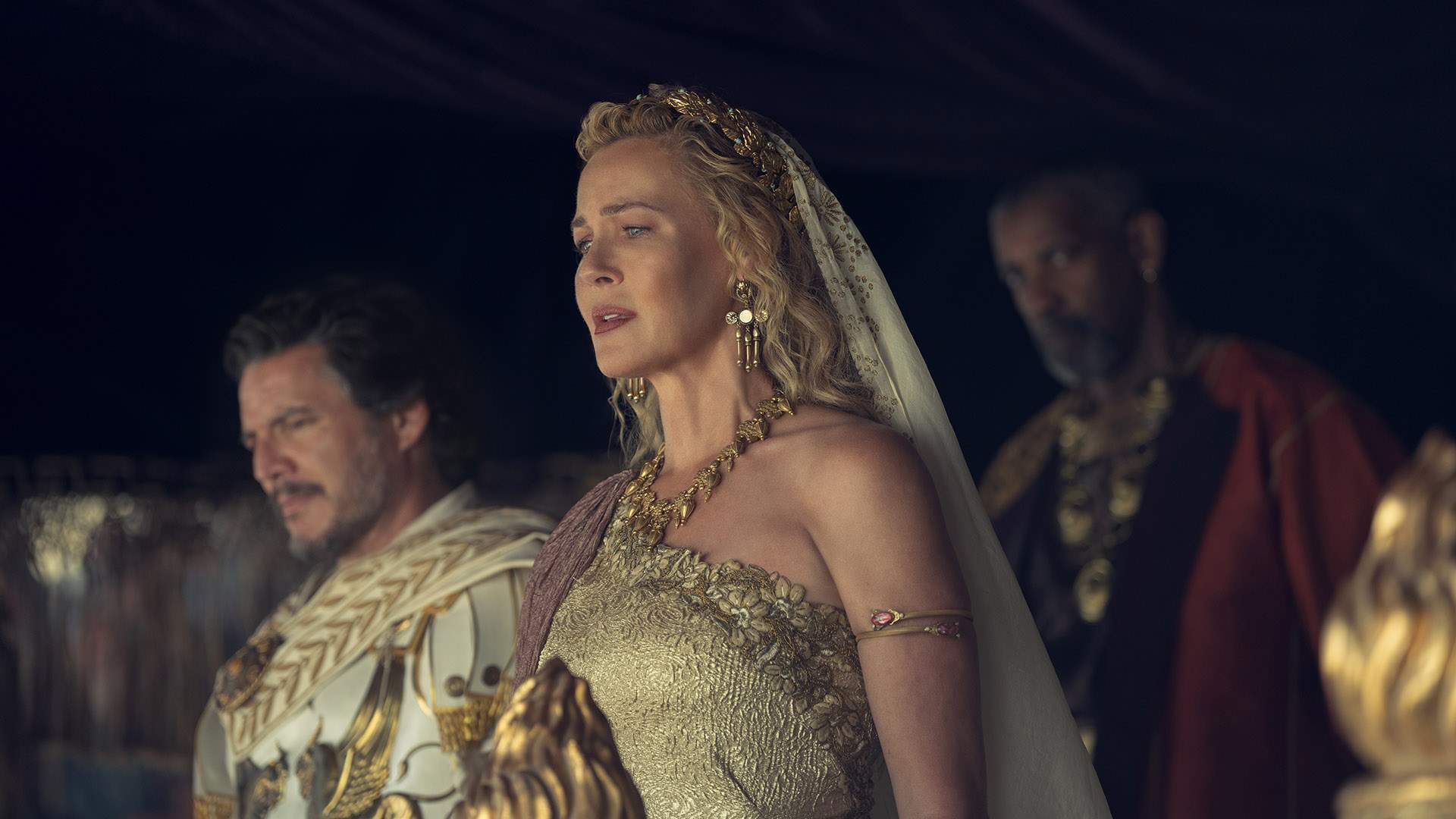
Connie: "Well, also because the first Colosseum was kind of like golden and bronzey just very sort of sun-drenched and gorgeous. And this one had a lot of red and black, and a lot of soot, a lot of homeless people at the arches outside of it. There was just a completely different set this time.
And so it was both home, but it was also very clear that Ridley had told the story that 18 years had passed since we last left the Colosseum in Gladiator. And that was just very impressive for me to watch how all of the tools that he as a master plays on.
And no one tells you. You have to really look. And when you're looking, you realise 'oh my god, he's playing on that and that thing', and it's like he's this master weaver."
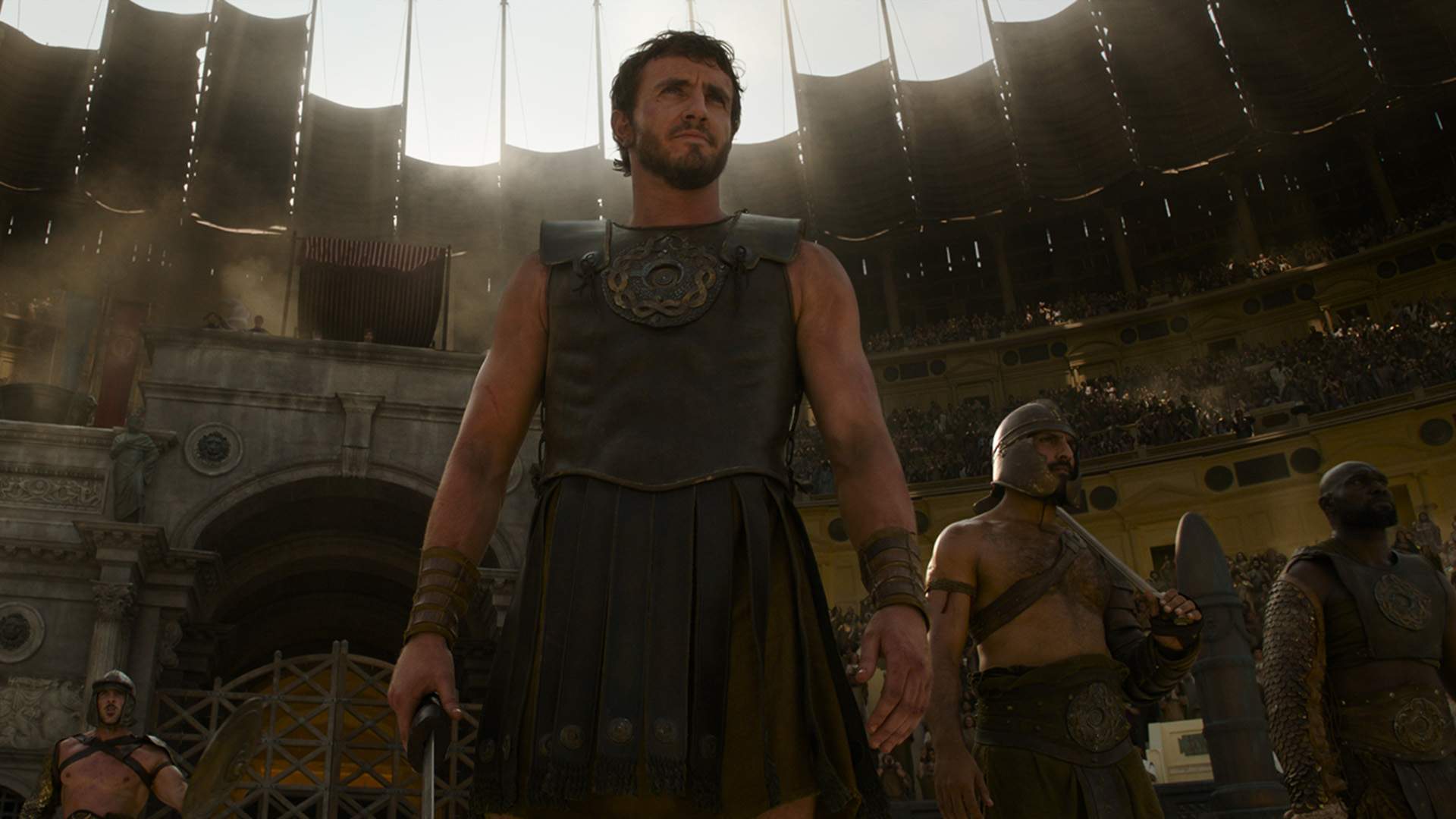
Paul: "100 percent."
Fred: "I really think it's the time. It's the end of an empire. It's where greed goes to die. My first conversation with Janty Yates, our costume designer, I said to her 'I want Caracella to feel like rotting gold'. And when you looked around ..."
Paul: "It felt that way."
Connie: "It was rot everywhere. Social rot."
Fred: "Yeah."

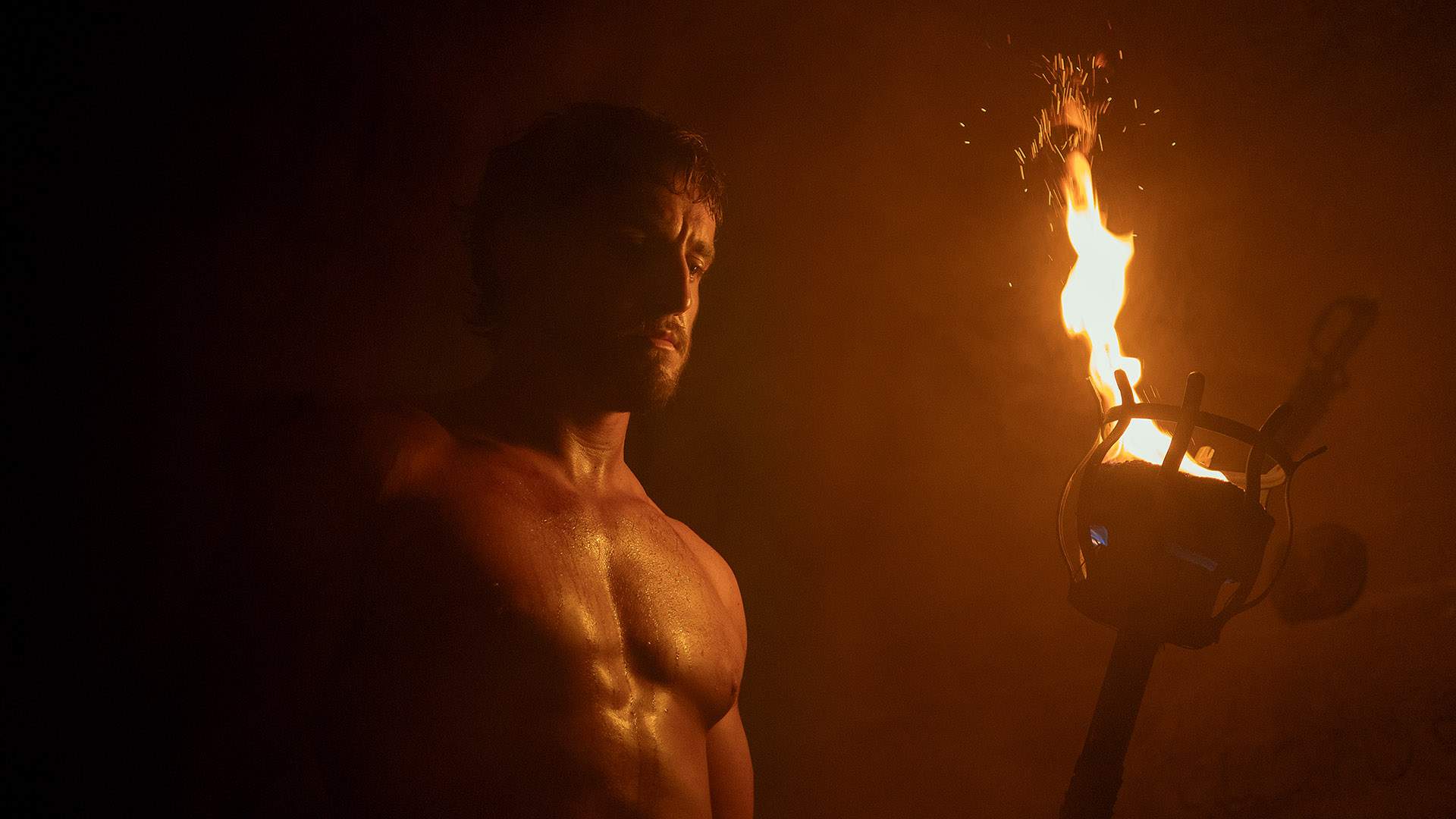
On Mescal's Determination to Unpack Male Psychology in His Roles — and to Find Warmth, Vulnerability and Openness While Playing a Gladiator
Paul: "I think it's this whole conversation about actors being transformative, which I think is so important, but it's also like if you look at painters that you really admire or any other form of artist, there is a template in the form that we admire about, say, van Gogh or Vermeer or something like that. We're not asking them to change their style every time.
Acting is slightly different if you're wanting to play different characters, but there is something that I'm drawn to in terms of the complexities of male psychology. Like, what is it about the way that we think is as young men in the world? That ultimately feels like, when I'm acting, that's my job to kind of allow an audience into to our psychology.
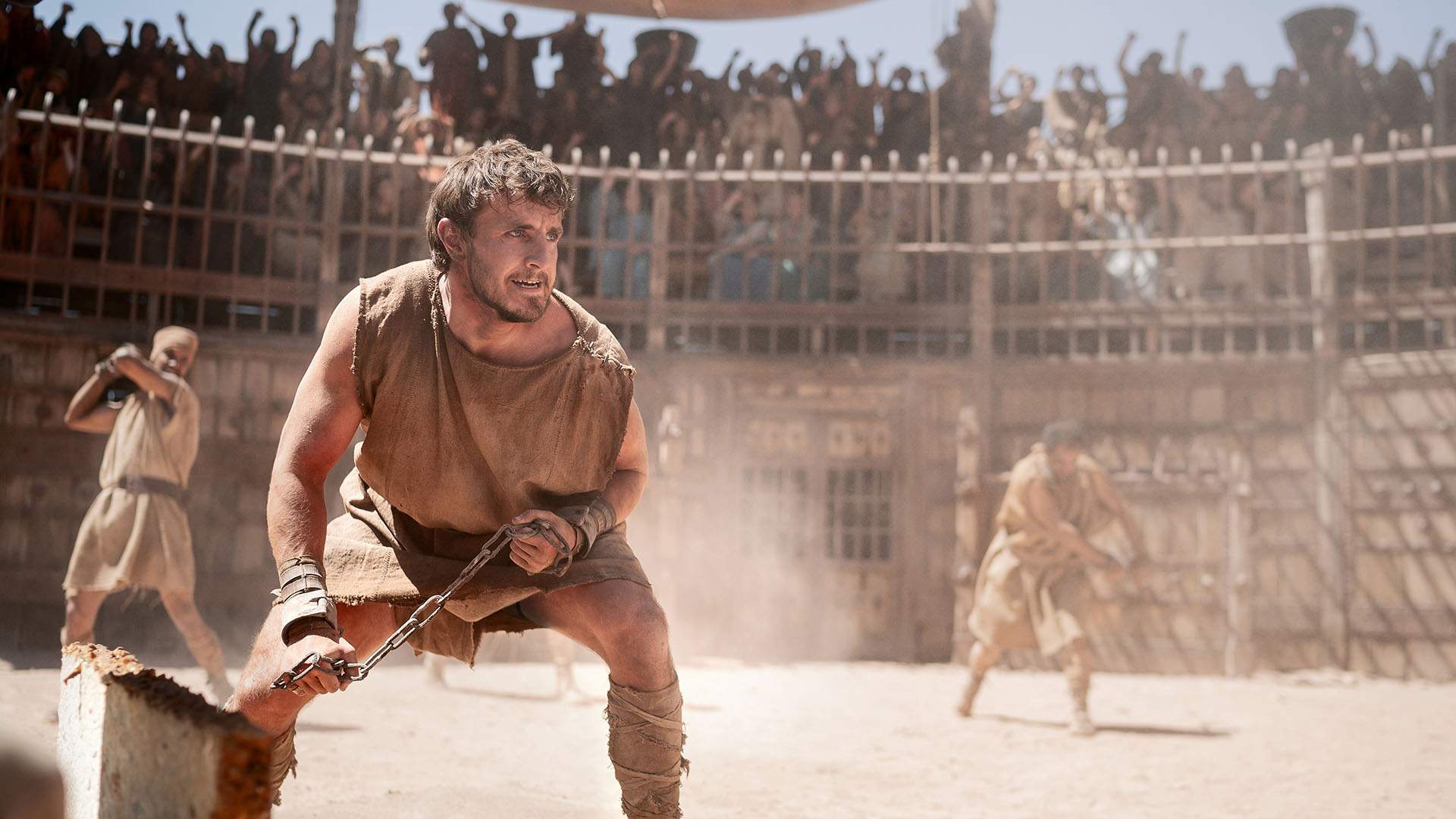
And I think when you're playing somebody who is brutalised and uses violence as a weapon in order to survive, that's one thing, but I think that you would grow tired of that as an audience if that was two-and-a-half hours of somebody expressing their life through violence. And I'm glad that you referenced that there is vulnerability there, because all of that anger isn't a means of being — it's a symptom that is built from the hurt that he's experienced.
And also it's a fun lens to get to play with. Like, how are you trying to let that version of the vulnerability creep through? So I think the kind of performance style that I'm interested in, both in doing and watching, is not when you hit an audience over the head — you're trying to slowly invite them in to be suspicious or curious about what's going on underneath the surface for every character I play, and it was no different with Lucius."

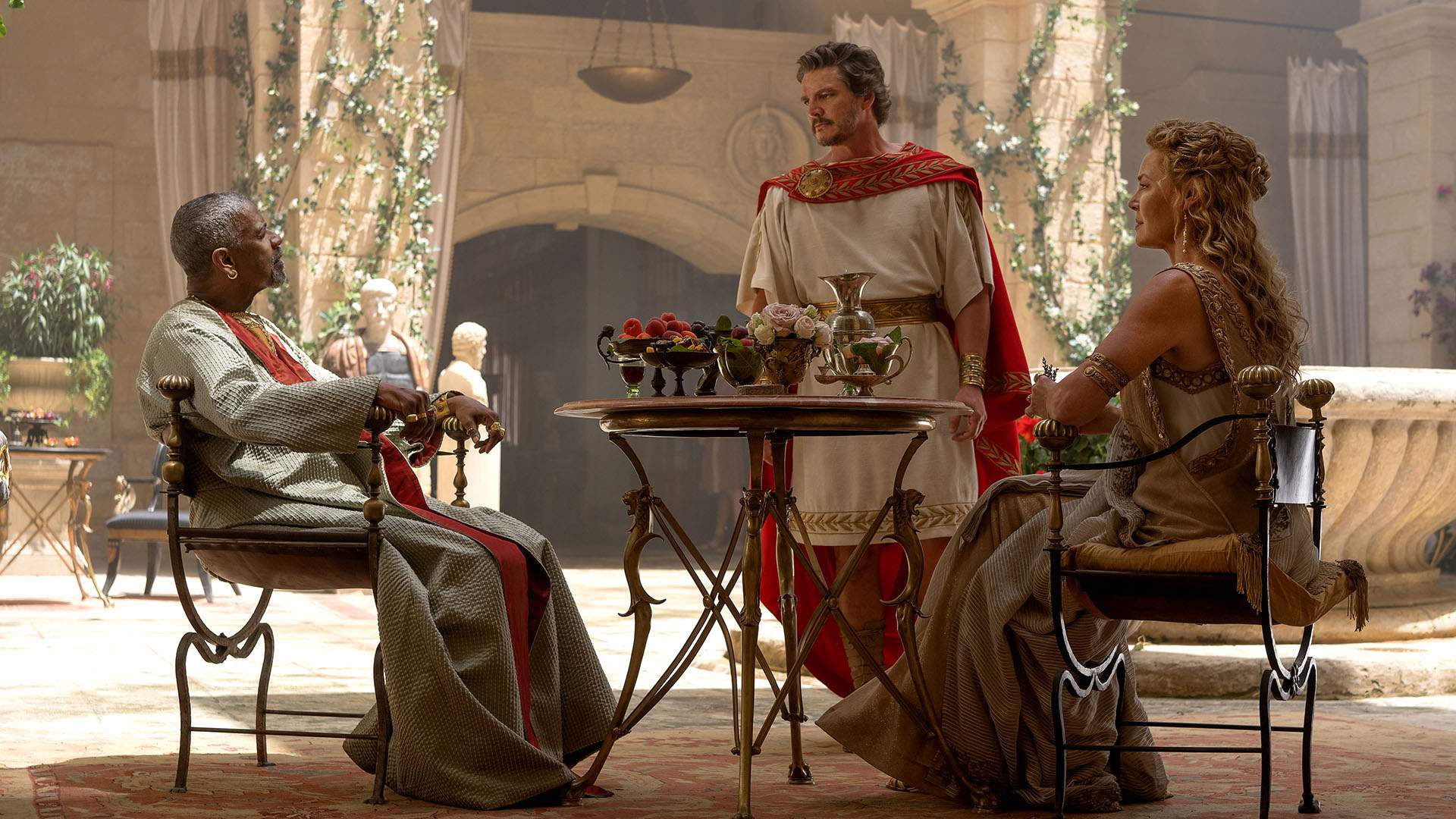
On Whether Gladiator II's Class Clashes Make It Feel Like a Movie for the Moment
Connie: "I think it's more subtle than that. I think I can understand why there is this experience of it, because we inevitably mirror ourselves in the stories that we watch. I also know that for sure this was part of what Ridley was playing on but. But as always with Ridley, it's very subtle.
I think that this is universal. It doesn't just belong to this moment. It belongs throughout history, that we consistently have to work at achieving that balance.
I think maybe when I was younger, when I was like 20, 30, even 40, I still believed that we were moving towards universal democracy. When Tiananmen happened, I thought …"
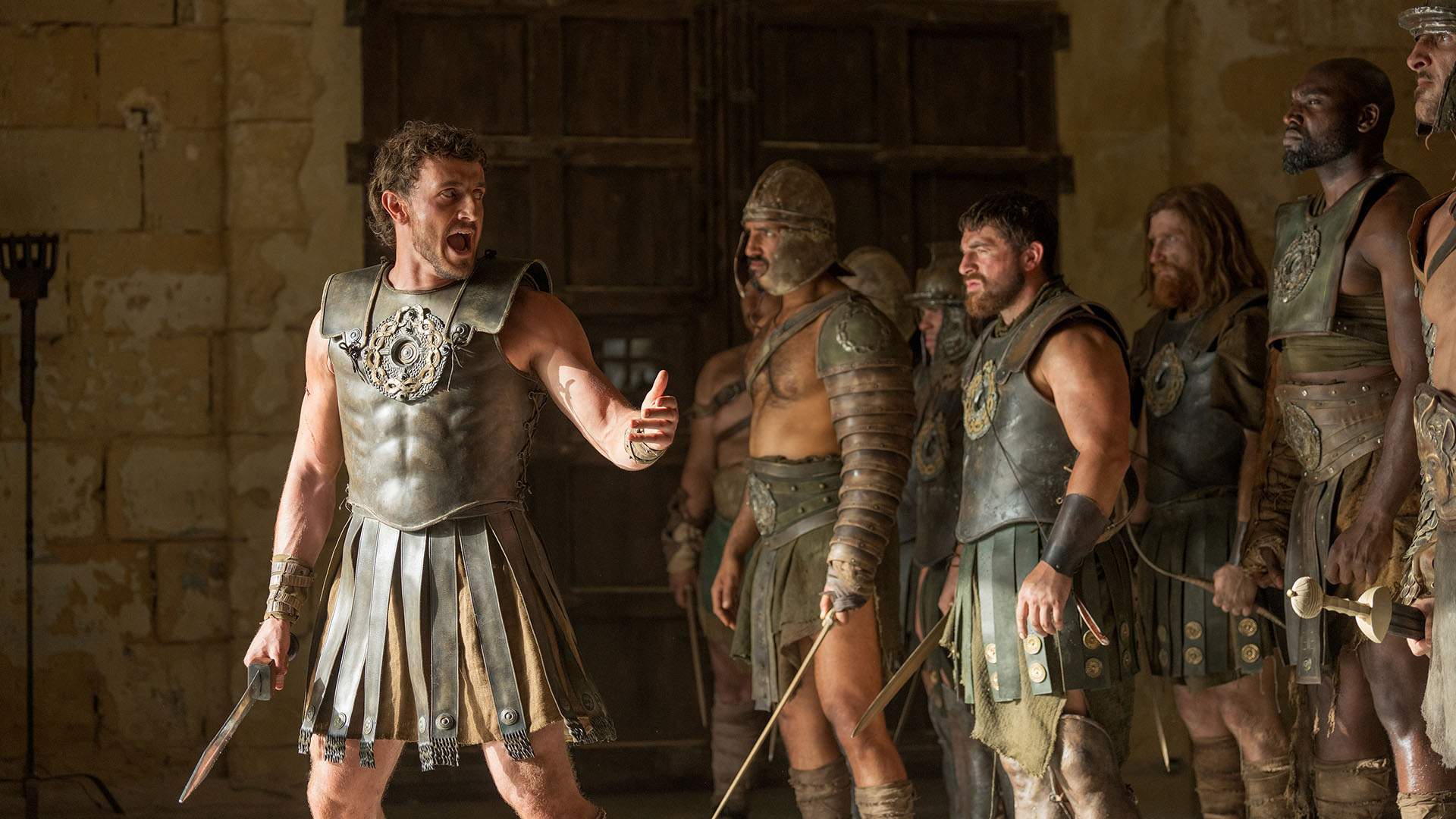
Paul: "That's surely going to be a moment."
Connie: "For sure, that's going to be freedom for so many people. And then now we're in the position that you don't feel like we're consistently moving towards that universal freedom. And I would even say that international rule of law has really taken a step back over the last five, six years, seven years. And so I think that it's understandable that people read into it. But I do think it's subtle and I also don't think it's the main cause of the film."
Paul: "I agree."

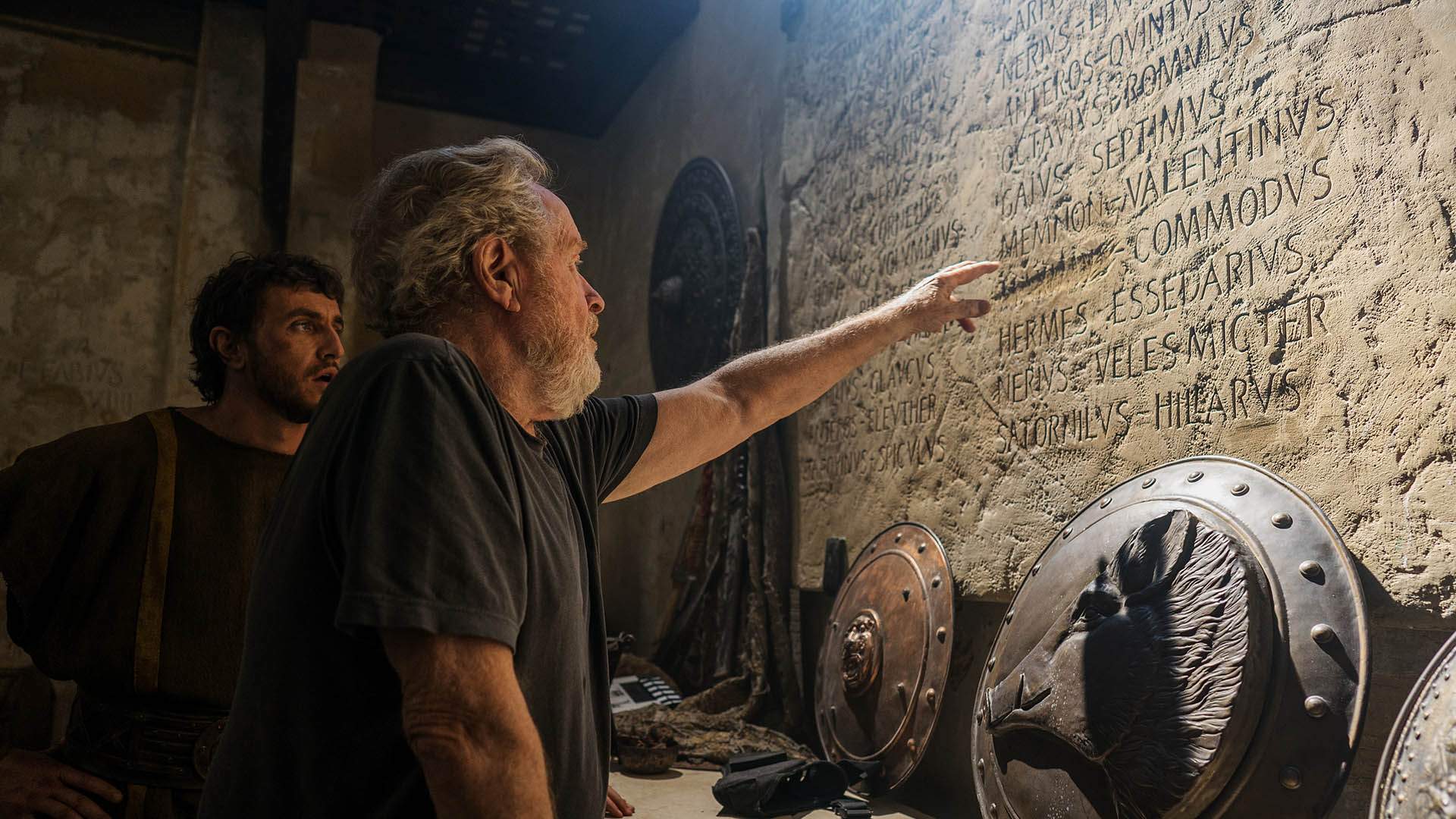
On What Mescal, Nielsen and Hechinger Learned From Working with Ridley Scott
Paul: "The thing that always strikes me about Ridley is if Ridley decided to never make a film again, he will go down as one of the greatest. But the thing that has struck me on a daily basis is that he could be so entitled as a man and a director, and he's one of the least-entitled people I know. His appetite for work ..."
Connie: "Is total."
Paul: "... is total. And I think as much as I have enjoyed everybody else that I've worked with, it's something that myself and everybody else included would probably say — that everybody else's work ethic pales in comparison to what he brings just innately as a human being.
So to get to watch that from somebody in their 80s is exactly what I would dream of having when I'm — basically I want to be like Ridley when I grow up. That's the root of it for me."
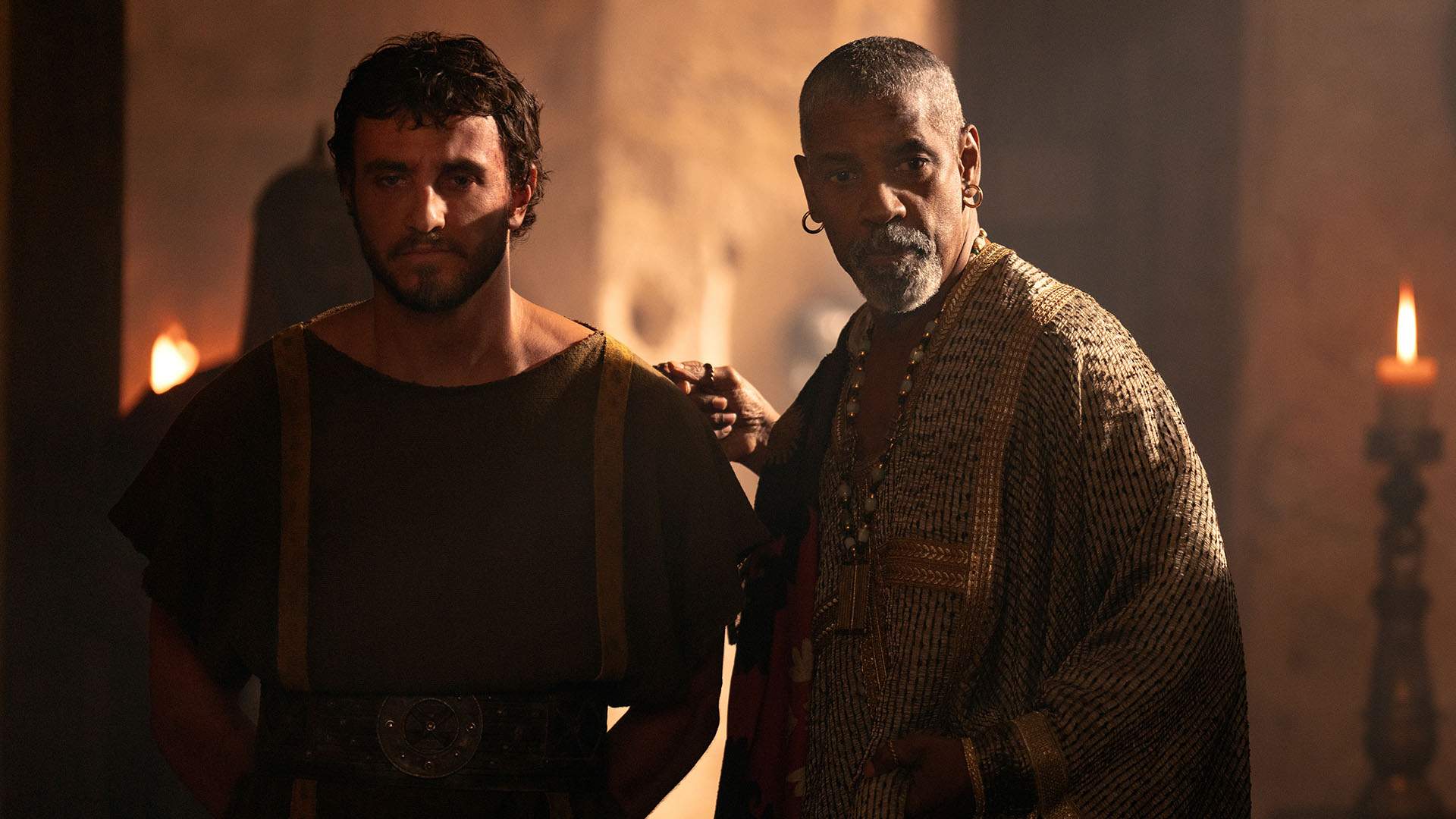
Connie: "For me, I look at him as a teacher at all times. I remember on the first film, I came on set in England, we were shooting the Germania battle, and I walk on set and I'm seeing 3000 soldiers on this giant open field that has literally been created by cutting and burning trees. Of course, completely sustainably. And I asked him 'but how are you going to make sure that the audience understands that Russell is coming from behind the enemy lines? How are you going to make sure they understand that?'.
And then he was just like 'alright, let me show you'. And he just showed me how all of the battle cameras were turning from left towards right. And then he said 'with all of these cameras where I am filming Russell galloping behind the lines, I am sending that camera from right to left. Intrinsically people will understand that this is what's happening'.
He also just drew up a diagram in three seconds and described exactly what it would look like from cut to cut to cut, like that, off the bat.
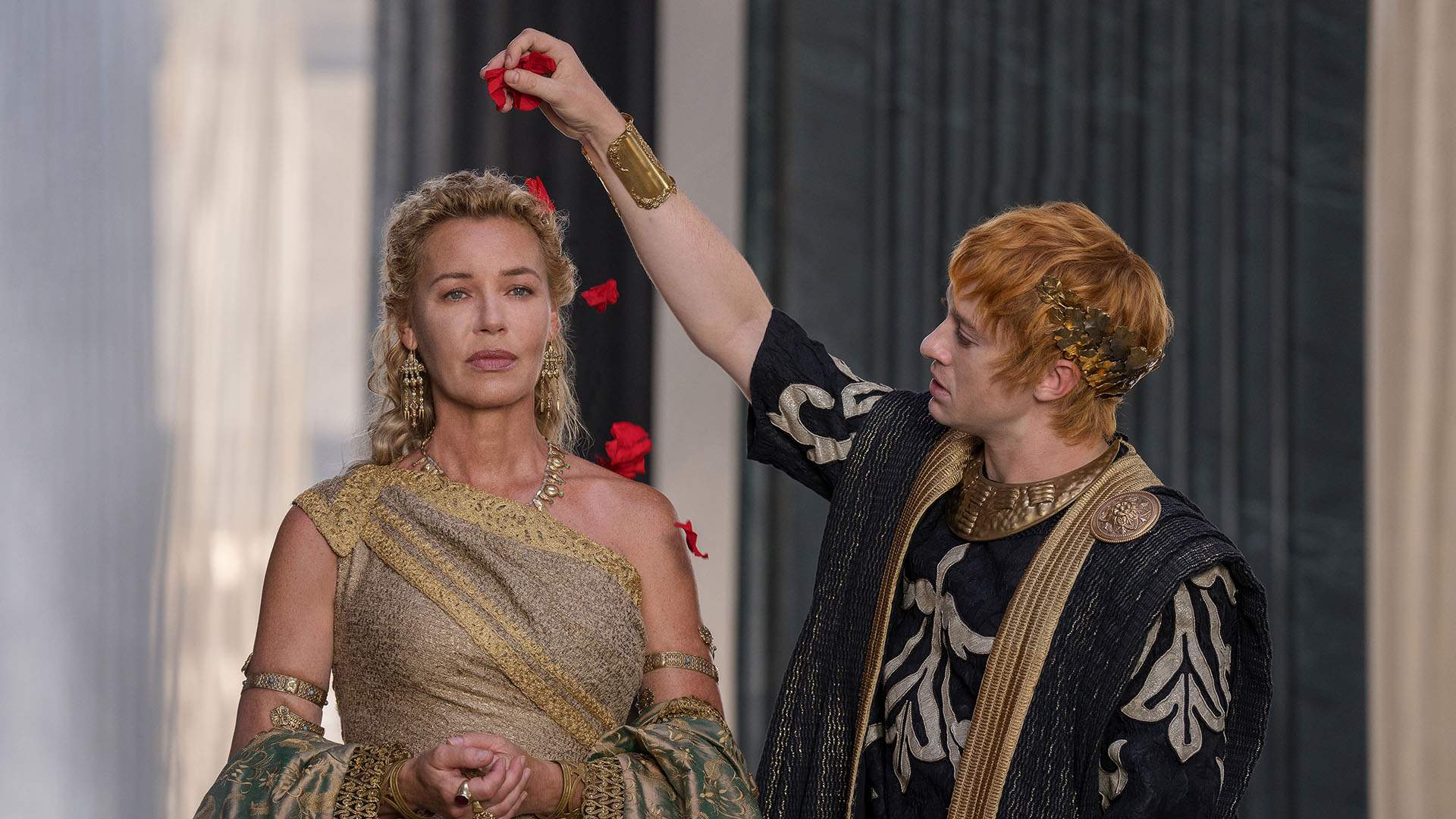
When we were on stage at a screening in London just a few days ago, he started describing how he was building, for example, an action sequence that involved baboons. And the way in which he described his choices, going from 'oh, I once met that one little baboon and that baboon had alopecia' — and the creativity of his brain, and then followed by his ability to then create a way of doing it, which literally did not exist probably technically before. But he's leaning on the amazing people that he hires, and who are able to read into what he's trying to create.
Then he is able to describe probably better than anyone what it is that he wants. He's able to say to me 'say that line' and I say it. And he's like 'no, not like that. Give me another line'. I'll come up with another line, and he's like 'no, too much description. Go there. Say it this way'. I'll come up with a line where, I'll go for that third time or fourth time, it'll be the right line. 'Okay, keep that line'.
You just are willing to bend over backwards for him and come up with 20 different lines. I'll have written out literally 20 different versions of what I'm trying to say, and he will tell me which one that will work, and he will then, with the greatest respect, incorporate it."
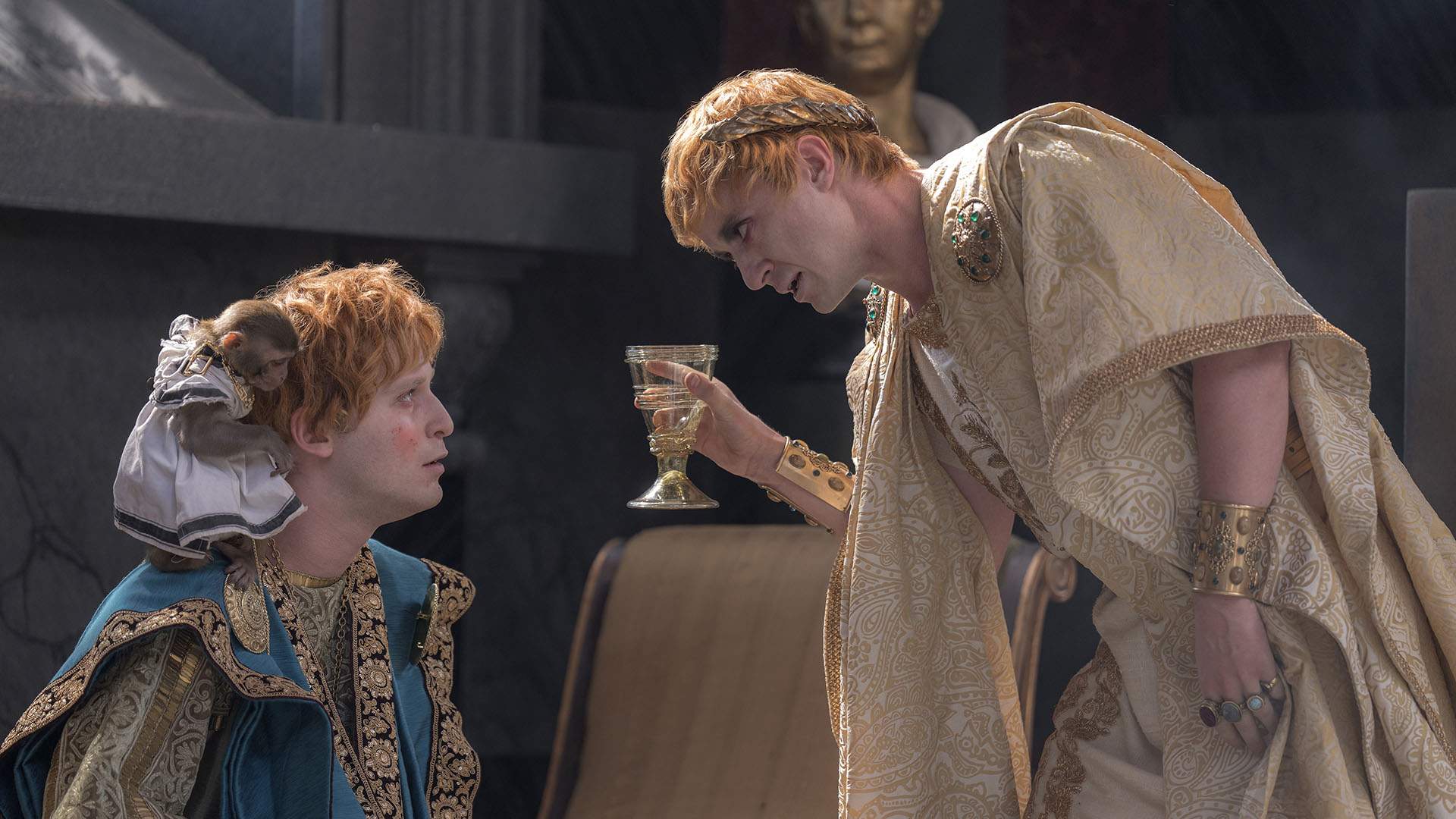
Fred: "His work ethic is an expression of his infinite love of cinema and the collaborative act of movie-making. I just think seeing Ridley on a film set is like is like seeing the most-perfect combination of the two."
Connie: "He's like a conductor."
Fred: "He shares his love in the most-infectious way. And it's funny because I know this was your last question and you had a minute, but clearly if you asked this at the beginning of the interview, we could have talked the entire interview ..."
Connie: "Yep."
Paul: "Just like that."
Fred: "... for five months about all the things that we learned from him. He teaches a million things every day and the things that he teaches you, sometimes he doesn't even need to tell you. They're just happening. He lives through action."
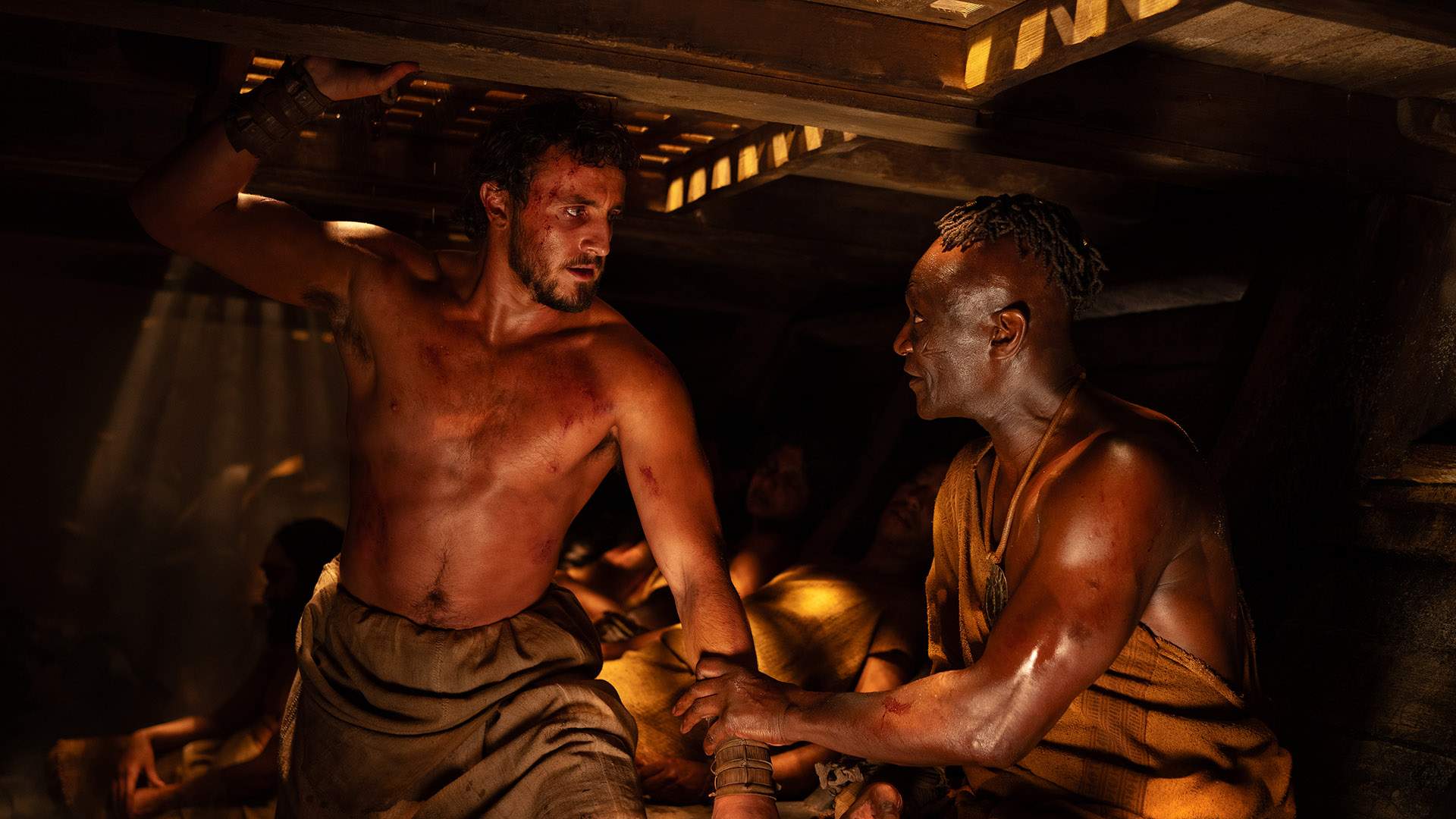
Connie: "But also he's amazing at actually directing without judging, which is a unique difference. He's not judging what you're doing."
Fred: "Yeah."
Connie: "He's directing from this open space."
Fred: "Conducting."

Gladiator II opened in cinemas Down Under on Thursday, November 14, 2024.
Images: © 2024 Paramount Pictures.
